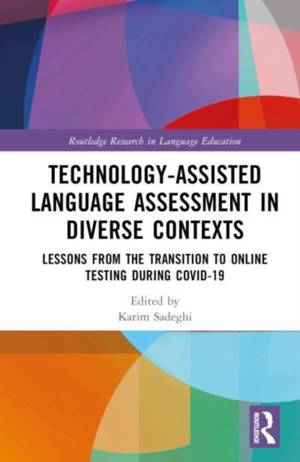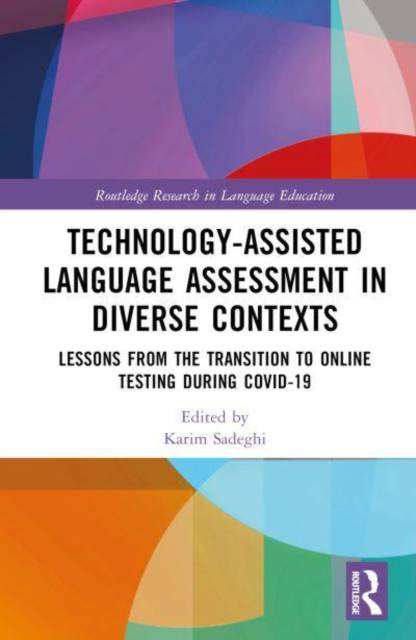
- Retrait gratuit dans votre magasin Club
- 7.000.000 titres dans notre catalogue
- Payer en toute sécurité
- Toujours un magasin près de chez vous
- Retrait gratuit dans votre magasin Club
- 7.000.0000 titres dans notre catalogue
- Payer en toute sécurité
- Toujours un magasin près de chez vous
Technology-Assisted Language Assessment in Diverse Contexts
Lessons from the Transition to Online Testing During Covid-19
Description
This timely collection explores the role of digital technology in language education and assessment during the COVID-19 pandemic. It recognises the unique pressures which the COVID-19 pandemic placed on assessment in language education, and examines the forced shift in assessment strategies to go online, the existing shortfalls, as well as unique affordances of technology-assisted L2 assessment.
By showcasing international examples of successful digital and computer-assisted proficiency and skills testing, the volume addresses theoretical and practical concerns relating to test validity, reliability, ethics, and student experience in a range of testing contexts. Particular attention is given to identifying lessons and implications for future research and practice, and the challenges of implementing unplanned computer-assisted language assessment during a crisis.
Insightfully unpacking the 'lessons learned' from COVID and its impact on the acceleration of the shift towards online course and assessment delivery, it offers important guidelines for navigating assessment in different instructional settings in times of crisis. It will appeal to scholars, researchers, educators, and faculty with interests in educational measurement, digital education and technology, and language assessment and testing.
Spécifications
Parties prenantes
- Editeur:
Contenu
- Nombre de pages :
- 252
- Langue:
- Anglais
- Collection :
Caractéristiques
- EAN:
- 9781032117683
- Date de parution :
- 30-12-22
- Format:
- Livre relié
- Format numérique:
- Genaaid
- Dimensions :
- 152 mm x 229 mm
- Poids :
- 497 g

Les avis
Nous publions uniquement les avis qui respectent les conditions requises. Consultez nos conditions pour les avis.





